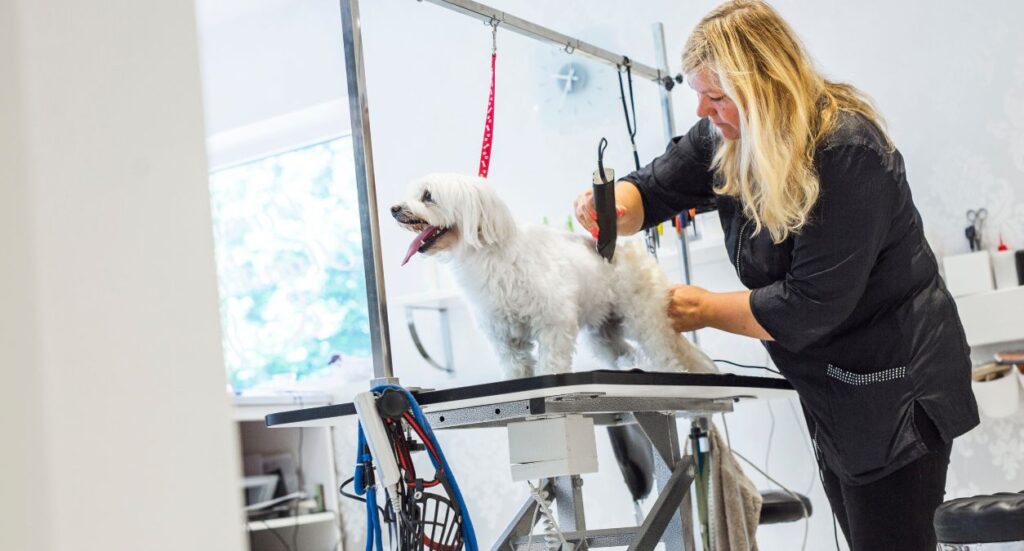What is Holistic Therapy?

Holistic therapy, also known as holistic healing or holistic medicine, is an approach to health and wellness that considers the person as a whole—mind, body, and spirit—rather than focusing solely on specific symptoms or ailments. Holistic therapy emphasises the interconnectedness of all aspects of an individual’s life and aims to promote balance, harmony, and well-being on multiple levels. A holistic therapist can approach this therapy in a number of ways, let’s explore some approaches.
Holistic Perspective on Health
Holistic therapy acknowledges that well-being is shaped by various factors, including physical, emotional, mental, and spiritual dimensions. It views individuals as interconnected beings, where each aspect of life influences overall health.
Personalised Approach
Rather than adopting a one-size-fits-all method, holistic therapy tailors treatments to suit each person’s unique experiences, needs, and aspirations. It recognises that what benefits one individual may not be effective for another, ensuring a bespoke approach to care.
Emphasis on Prevention
A core principle of holistic therapy is the prevention of illness through proactive lifestyle choices, self-care, and stress management. Clients are encouraged to take responsibility for their well-being, fostering long-term health and resilience.
Combination of Therapies
Holistic therapy integrates a variety of healing methods, both traditional and complementary, to support overall wellness. These may include nutrition, exercise, meditation, mindfulness, herbal remedies, energy healing, bodywork, and counselling, among others.
Mind-Body-Spirit Balance
Recognising the deep connection between mind, body, and spirit, holistic therapy aims to create harmony between these elements. Achieving balance in these areas contributes to a sense of overall well-being and vitality.
Encouraging Self-Healing
Holistic therapy empowers individuals to take charge of their health and unlock their natural ability to heal. By fostering self-awareness, self-compassion, and resilience, it helps clients make informed choices that enhance their well-being.
Collaborative and Integrated Care
Holistic therapy often works alongside conventional healthcare, involving professionals such as doctors, psychologists, nutritionists, and bodyworkers. This integrative approach ensures clients receive well-rounded support for their overall wellness.
What approaches do Holistic Therapists take?

A holistic therapist takes a comprehensive approach to healing and wellness, considering the person as a whole—mind, body, and spirit—rather than focusing solely on specific symptoms or ailments. The goal of holistic therapy is to promote balance and harmony in all aspects of an individual’s life to support overall well-being. Here are some key aspects of what a holistic therapist does:
Assessment and Evaluation
A holistic therapist begins by conducting a thorough assessment of the client’s physical, emotional, mental, and spiritual health. This may involve gathering information about the client’s lifestyle, diet, relationships, stress levels, and any existing health conditions.
Individualised Treatment Plans
Based on the assessment, the therapist develops a personalized treatment plan tailored to the unique needs and goals of the client. This plan may incorporate a variety of holistic healing modalities to address the client’s physical, emotional, and spiritual needs.
Empowerment and Education
Holistic therapists empower clients to take an active role in their healing journey by providing education, guidance, and resources to support self-care practices and lifestyle changes. This may include teaching clients stress management techniques, relaxation exercises, and healthy coping strategies.
Integration and Collaboration
Holistic therapists often collaborate with other healthcare providers, such as medical doctors, psychologists, nutritionists, and bodyworkers, to provide integrated care and support for their clients’ holistic wellness needs.
What are popular Holistic Therapies?

Popular holistic therapies encompass a wide range of approaches that address the mind, body, and spirit to promote overall health and well-being. Here are some examples of popular holistic therapies:
Acupuncture
A traditional Chinese medicine practice that involves the insertion of thin needles into specific points on the body to stimulate energy flow and promote balance.
Chiropractic Care
A form of alternative medicine that focuses on diagnosing and treating musculoskeletal disorders, primarily through manual adjustments of the spine and other joints.
Massage Therapy
A hands-on therapy that involves manipulating muscles, connective tissues, and joints to promote relaxation, relieve tension, and improve circulation.
Yoga
An ancient practice that combines physical postures, breathwork, and meditation to promote flexibility, strength, relaxation, and mental clarity.
Meditation
A mindfulness practice that involves focusing the mind and cultivating awareness to promote relaxation, stress reduction, and emotional well-being.
Herbal Medicine
The use of plants and plant extracts to prevent and treat various health conditions, often based on traditional knowledge and practices.
Homeopathy
A system of alternative medicine that uses highly diluted substances to stimulate the body’s natural healing processes and restore balance.
Aromatherapy
The use of essential oils extracted from plants to promote physical, emotional, and mental well-being through inhalation, topical application, or diffusion.
Energy Healing
Various practices, such as Reiki, Qi Gong, and Healing Touch, that work with the body’s energy fields to promote balance, relaxation, and healing.
Nutritional Therapy
A holistic approach to health that focuses on the role of diet and nutrition in preventing and treating health conditions, promoting optimal health, and supporting overall well-being.
Holistic Counselling
A form of psychotherapy that considers the interconnectedness of mind, body, and spirit, addressing emotional issues and promoting personal growth and self-awareness.
Sound Therapy
The use of sound vibrations, such as singing bowls, tuning forks, or music, to promote relaxation, reduce stress, and enhance well-being.
How to become a Holistic Therapist?

Becoming a holistic therapist in the UK typically involves several key steps, including education, training, certification, and ongoing professional development. Holistic therapy encompasses a wide range of complementary and alternative treatments designed to promote physical, emotional, and spiritual well-being. If you are considering a career in this field, here is a detailed guide to help you get started.
Education and Training
The first step towards becoming a holistic therapist is enrolling in a recognised training programme or course. When selecting a course, consider the following:
- Ensure the programme is accredited by a reputable regulatory body, such as the Federation of Holistic Therapists (FHT), the Complementary and Natural Healthcare Council (CNHC), or the British Complementary Medicine Association (BCMA).
- Choose a course that offers both theoretical knowledge and hands-on practical training, as holistic therapy requires a strong understanding of human anatomy, physiology, and energy work.
- Consider the level of qualification, such as a Diploma, Level 3 or Level 4 NVQ, or a Degree in complementary therapy, depending on your career aspirations.
Many training providers offer flexible study options, including in-person, online, or blended learning formats, allowing students to train at their own pace.
Certification and Accreditation
Once you have completed your education and training, you may need to obtain certification or accreditation to practise professionally. Requirements vary depending on the specific therapy and the governing body in charge of accreditation.
- Some disciplines, such as acupuncture and osteopathy, are regulated professions in the UK, meaning you must register with an official body like the British Acupuncture Council (BAcC) or the General Osteopathic Council (GOsC) before practising.
- For other holistic therapies, registration with a voluntary regulatory body, such as the Complementary and Natural Healthcare Council (CNHC), can enhance your credibility and professional standing.
- You may be required to pass an assessment or examination to demonstrate your competency in your chosen therapy.
- Many professional organisations also require practitioners to complete a certain number of practical hours before obtaining full certification.
Accreditation ensures that you adhere to industry standards and best practices, which can increase client trust and improve employment opportunities.
Registration with Professional Bodies
You can register with professional bodies or associations relevant to your holistic therapy discipline. Membership in professional organisations can provide networking opportunities, access to resources and continuing education, and credibility within the field.
Examples of professional bodies for holistic therapists in the UK include the Federation of Holistic Therapists (FHT), the Complementary and Natural Healthcare Council (CNHC), and the British Acupuncture Council (BAcC), among others.
Continuing Professional Development (CPD)
Engage in ongoing professional development and continuing education to enhance your skills, knowledge, and expertise in holistic therapy. Many professional organizations require members to complete a certain number of CPD hours each year to maintain certification or registration.
Establish your holistic therapy practice or seek employment opportunities in holistic health clinics, spas, wellness centres, hospitals, or other healthcare settings.
Adhere to ethical guidelines and standards of practice in your field, ensuring that you provide safe, effective, and client-cantered care.
Insurance and Legal Considerations
It is advisable to obtain professional liability insurance to safeguard yourself and your practice against potential legal claims or liabilities. This provides peace of mind and ensures that you are adequately protected should any issues arise.
Take the time to familiarise yourself with the relevant laws, regulations, licences and professional guidelines governing holistic therapy in the UK. Key areas to consider include health and safety regulations, data protection laws (such as GDPR), and codes of professional conduct set by recognised industry bodies. Adhering to these standards helps maintain professionalism, client trust, and legal compliance.
By committing to ongoing education, training, certification, and professional development, you can establish yourself as a qualified and competent holistic therapist in the UK. Staying informed about advancements in holistic therapies and continuously refining your skills will enable you to offer the highest standard of care and support to your clients.
Get Holistic Therapy Insurance with Protectivity
As with every type of small business, taking out comprehensive insurance cover is crucial, particularly having specialised insurance for holistic therapy.
Protectivity’s holistic therapy insurance is designed with skilled professionals like you in mind. Our cover includes public liability insurance of up to £5million, professional indemnity, personal accident, equipment cover, and employers’ liability if you employ other people.
Our policies are available through flexible payment plans giving you peace of mind and the confidence to grow your business. Take a closer look at our holistic therapy insurance in more detail today.
Get Therapist Insurance from Protectivity
*Disclaimer – This blog has been created as general information and should not be taken as advice. Make sure you have the correct level of insurance for your requirements and always review policy documentation. Information is factually accurate at the time of publishing but may have become out of date.
Last updated by

















